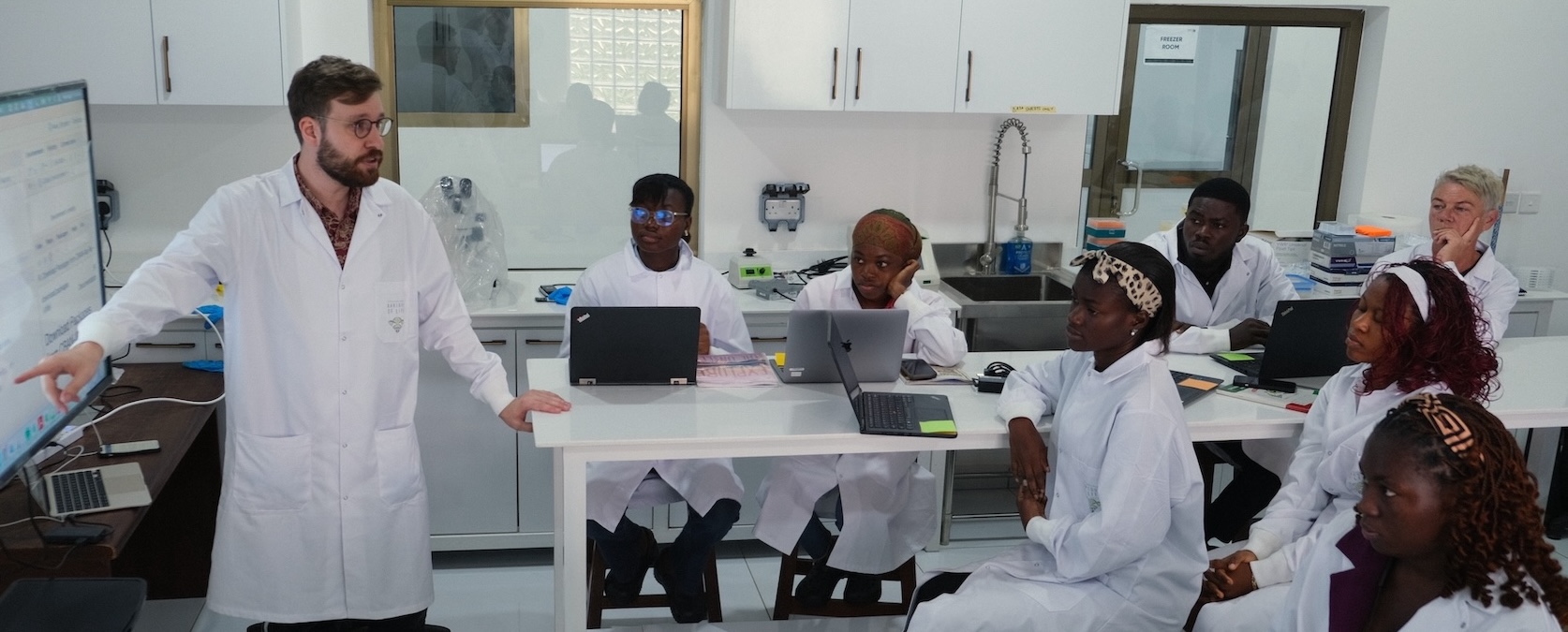Science
University of Guelph Experts Train African Scientists in DNA Barcoding

The University of Guelph’s Centre for Biodiversity Genomics (CBG) has embarked on an initiative to enhance scientific capacity in developing countries by sharing expertise in DNA barcoding technology. This summer, CBG team members traveled to Peru and Ghana to conduct training sessions aimed at empowering local researchers and students in the use of this innovative technology.
Expanding Access to DNA Technology
Founded by Dr. Paul Hebert, the CBG operates with a mission to identify and catalog the multitude of species inhabiting Earth. Through advanced DNA sequencing and data analysis, the facility has amassed the world’s largest DNA library, containing over 15 million specimens. Despite this achievement, many species remain unclassified, highlighting the urgency of expanding scientific knowledge globally.
During their visits to Peru and Ghana, CBG experts guided participants through the entire DNA barcoding workflow—from field collection to data analysis. “As much of the world’s biodiversity lies in the Global South, it is critical that we build scientific capacity in these nations,” Hebert stated.
The training sessions were part of the broader efforts of the International Barcode of Life consortium (iBOL), which connects researchers in over 40 countries to facilitate the inventory of Earth’s biodiversity through DNA analysis.
Hands-On Learning Experience
At the University of Ghana, CBG’s Dr. Ken Thompson and Dr. Spencer Monckton, along with colleagues from the University of Johannesburg, interacted with 35 participants, including students, researchers, and government officials from Côte d’Ivoire, Ghana, and Guinea. “Molecular biology is far less accessible across much of Africa than in the West,” Monckton noted. “Our primary objective was to bridge that gap by equipping delegates with the knowledge and skills to utilize DNA barcoding effectively.”
Participants engaged in lectures and hands-on laboratory training, learning to document biodiversity using DNA barcoding. This technology significantly enhances species identification, making it faster and more accurate.
Thompson, who is part of the CBG’s innovation team, highlighted the development of ONTOLOGY, a comprehensive suite of software and chemware utilized during the training. “The participants displayed tremendous enthusiasm; many asked for additional assignments and worked late into the night,” he remarked.
The training also provided valuable learning opportunities for the experts, who worked with a diverse array of specimens from Peru and West Africa, including insects and plankton. By the end of the course, each participant completed a project analyzing their data and presented their findings.
“When the right instructor meets the right student, the impact can be profound,” Thompson stated. Monckton echoed this sentiment, expressing excitement at witnessing the immediate positive effects of their work. “Introducing new tools sparks creativity, and it is rewarding to see how eagerly participants apply their new skills.”
Before concluding their sessions, Monckton and Thompson offered ongoing support for the participants’ future research endeavors. Several participants have already reached out for assistance, and the team is also maintaining connections with those from Peru, who are set to visit CBG for further collaboration.
Thompson affirmed the significance of the initiative, stating, “There is immense interest in our work at CBG. Education truly represents a life-changing opportunity for many.”
-

 Science2 months ago
Science2 months agoToyoake City Proposes Daily Two-Hour Smartphone Use Limit
-

 Health2 months ago
Health2 months agoB.C. Review Reveals Urgent Need for Rare-Disease Drug Reforms
-

 Top Stories2 months ago
Top Stories2 months agoPedestrian Fatally Injured in Esquimalt Collision on August 14
-

 Technology2 months ago
Technology2 months agoDark Adventure Game “Bye Sweet Carole” Set for October Release
-

 World2 months ago
World2 months agoJimmy Lai’s Defense Challenges Charges Under National Security Law
-

 Technology2 months ago
Technology2 months agoKonami Revives Iconic Metal Gear Solid Delta Ahead of Release
-

 Technology2 months ago
Technology2 months agoSnapmaker U1 Color 3D Printer Redefines Speed and Sustainability
-

 Technology2 months ago
Technology2 months agoAION Folding Knife: Redefining EDC Design with Premium Materials
-

 Technology2 months ago
Technology2 months agoSolve Today’s Wordle Challenge: Hints and Answer for August 19
-

 Business2 months ago
Business2 months agoGordon Murray Automotive Unveils S1 LM and Le Mans GTR at Monterey
-

 Lifestyle2 months ago
Lifestyle2 months agoVictoria’s Pop-Up Shop Shines Light on B.C.’s Wolf Cull
-

 Technology2 months ago
Technology2 months agoApple Expands Self-Service Repair Program to Canada









